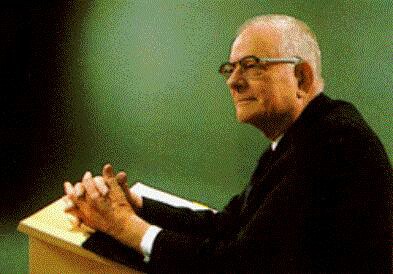
Last Thursday we talked about the importance of having a mentor in so many successful people’s lives. What’s the common factor that all great mentors share? It’s not their education levels, their place in our society, or even their ability to see potential opportunities. All great mentors understand several truths about mentoring others. So let’s see if we can share them with you to help you become a better mentor.
The first truth mentors deal with is that the mentee has their own view of the world. Frequently, it’s not the same view of the world that other people have. Depending on the circumstances, it could be overly pessimistic. It’s shaped by their life experiences and those of their peer group. I have found that the people most impacted by mentors have highly polarized ideas about how the world works.
The first step in a good mentoring relationship is to understand how your mentee sees the world. This stage may take significant time and efforts on your behalf to uncover the truth of how they see the world. For the person involved it means they must be willing to share and explore why they feel the way they do. It can be challenging for a person to explain how they see the world. Many times, their view of the world is inherited from others and their peer groups. A successful mentor has to be good at making the person feel comfortable sharing ideas without being judged.
The second truth of mentoring is acknowledging you also have your own world view. Most mentors also have strong ideas about how things should work. This is what makes them great mentors; it also may limit their ability to see other points of view. In many cases, they have a strong understanding of who they are but do not understand how differently they see the world, compared to others. This is one of the paradoxes about being a good mentor. Mentors must we willing to explore and understand their own ideas and prejudices if they hope to connect to the other person.
You can see this when you mentor people with different economic and national backgrounds than your own. Things you take for granted may seem miraculous to the person you mentor. When working with people from different parts of the world, something as simple as modern restroom facilities can provide incredible insights into how they see their world.
This is not only the case for people with different backgrounds, but also different professional backgrounds can create a chasm when it comes to understanding the truth of a given situation. For many professionals with advanced education as part of their professional training, they have been taught how to see and understand things. For example, think about how a lawyer and a doctor see the same set of facts. Good mentoring requires you to build your own self-awareness and also increase your awareness of others unique needs in the process.
The third truth of mentoring is the one that is hard to explain but creates significant opportunities for growth. I believe great mentors see a larger truth in dealing with others. They see the other persons potential, many times, many years before the other person. They may seem to be blind to the person’s current limitations. Good mentors can help you become more than you thought you could be.
Good mentors are not afraid to step out of their own comfort zones to help the other person. As importantly, they share when they are uncomfortable to help the other person understand that change can be a growing experience.
The final truth of mentoring is all good mentors tell stories. Storytelling helps the other person connect to ideas and concepts that may not be included in their own truth at the time. When talking to people who are creating new paths in society they often find the power of stories to help them share and understand the possibilities. Great mentors can help create a world that the mentee can fit in as a bridge to their own future. When you listen to world’s greatest explorers, athletes, and breakthrough scientists, you discover their mentors painted such a vivid picture of the future; they just had to walk into it.
Mentors understand the power of imagination and potential are a powerful combination. Next week, we share how to tell a better story. See you here.



